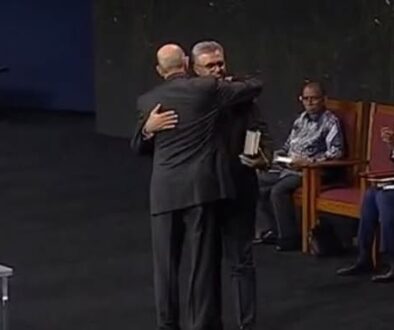Training on How to Use 12-Step Groups in Outreach is Offered by Adventist Ministry
By AT News Team, Dec. 11, 2014: The 12-Step approach to dealing with addiction was invented by Alcoholics Anonymous (AA) and is now the most widely known and used around the world. Less well known is that there is a growing network of Adventists who use the 12-Step method in small groups both for church members and as outreach beyond the church.
At least five training sessions to help start more groups and introduce Adventist resource materials are planned in 2015 across the United States from New York City to southern California. These are being organized by Adventist Recovery Ministries:
February 9-11 in Atlanta, Georgia
February 27 to March 1 in Brooklyn, NYC
April 10-12 in Glendale, California
June 19-21 in Brooklyn, NYC again
October 9-11 in Dallas, Texas
Each of these training events includes presentations on the basic principles of the 12 Steps with correlations to Bible foundations and the Adventist heritage. There are simulated 12-Step small group meetings so that participants can catch the flavor of people sharing their experiences, needs, strengths and hopes. Adventist resource materials will be introduced.
The same training was conducted in Portland, Oregon, in October this year. Training teams are available for invitations to other locations.
The 12-Step approach is controversial for some Christians because in secular settings it often includes a kind of generic spirituality related to “a higher power” instead of specific Bible doctrine. A number of conservative Protestant and Adventist writers have also shown that it is rooted in biblical principles.
Adventist Recovery Ministries has been accepted by the denomination’s North American Division (NAD) as a recognized ministry of the Adventist Church. Its history goes back to Pastor Hal Gates in the 1980s, the Regeneration materials he developed in collaboration with the Institute of Alcoholism and Drug Dependencies at Andrews University and an Association of Adventist Parents of young adults with substance abuse issues that came together around the same time.
Gates was an alcoholic and drug addict who found Christ and changed his addictive behavior with the help of an Adventist friend in 1981. He was later hired as the pastor of a small church in Willapa Harbor, Washington, and began a 12-step outreach. In 1987, Dr. Pat Mutch invited him to help teach a class for graduate students at Andrews University and this resulted in him preparing resource materials published under the title of Regeneration. These quickly became widely used among Adventists in North America, Europe and Australia.
Pastor Ray Nelson became passionate about the effectiveness of recovery ministry and began to promote the concept. In 2002 through 2005 the health ministries department of the NAD sponsored many awareness seminars across the continent. In 2007 more than 200 people participated in an Addictions Ministry Conference at Andrews University and the following year the Association of Adventist Parents merged with the Regeneration network to form Adventist Recovery Ministries.
In 2011 the Adventist Recovery Ministries dissolved its independent board and the NAD voted to make it a ministry of the denomination and officially appointed a governing committee linked to the denominational organization. The committee includes 12 denominational leaders, three faculty members from Adventist universities, two Adventist health professionals and two lay organizers for the network. It is chaired by Debra Brill, a vice president of the NAD.
More information is available at the Web site: www.adventistrecovery.org



